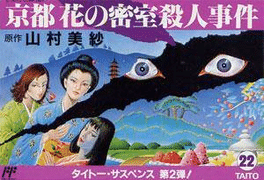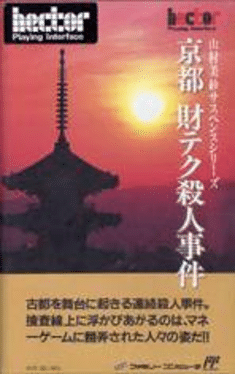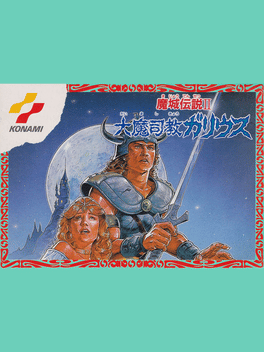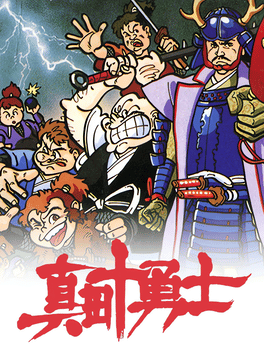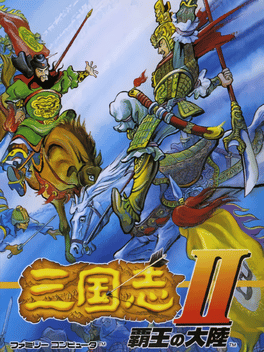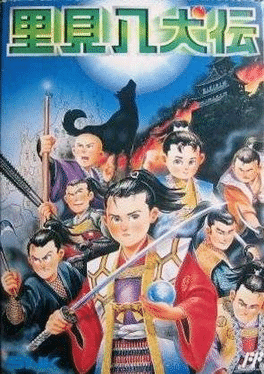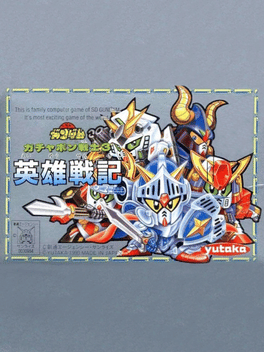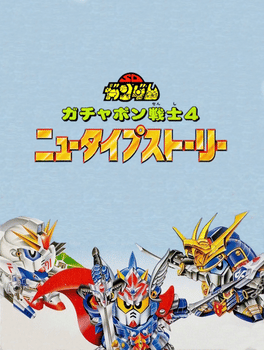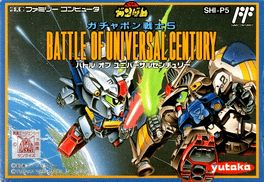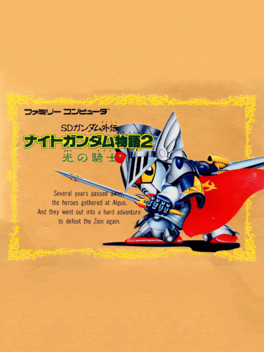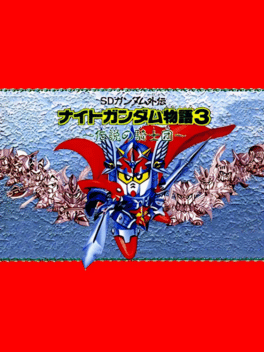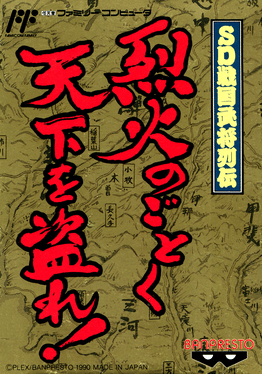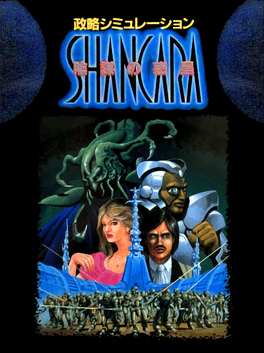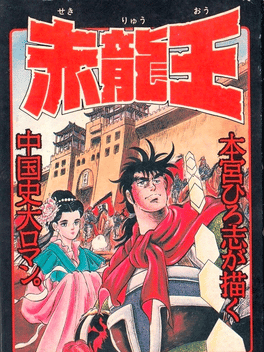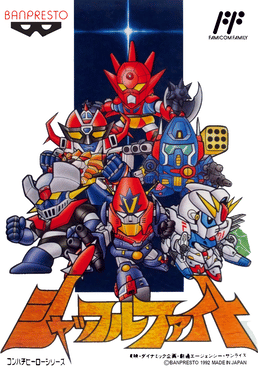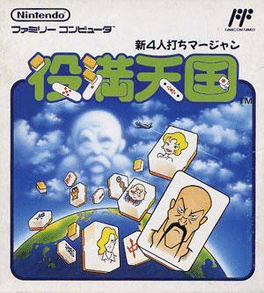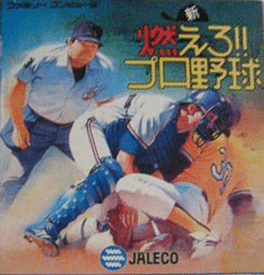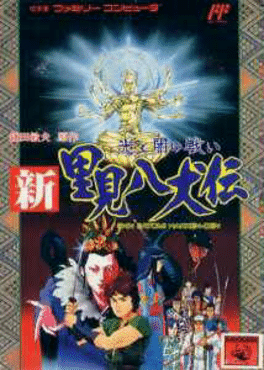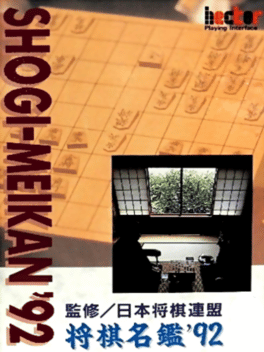Most Popular Family Computer Games - Page 29
-
Vegas Connection: Casino Kara Ai wo Komete
1989
Vegas Connection: Casino Kara Ai o Komete is a Miscellaneous game, developed by Graphic Research and published by Sigma Ent. Inc., which was released in Japan in 1989. -
Yamamura Misa Suspense: Kyoto Hana no Misshitsu Satsujin Jiken
1989
The second in the Yamamura Misa Suspense series of murder mystery adventure games. It was published by Taito for the Famicom in Japan only. Yamamura Misa Suspense: Kyoto Hana no Misshitsu Satsujin Jiken is the second game based on the work of Japanese mystery novelist Misa Yamamura (the first being Yamamura Misa Suspense: Kyouto Ryuu no Tera Satsujin Jiken) and, like the first, concerns a murder in the picturesque Japanese city of Kyoto. As with the first game, and conversely to other Famicom adventure games around at the time, Hana no Misshitsu Satsujin Jiken has a dynamic bar of commands the player can perform; it changes to reflect what actions are currently possible for the player character in that area, so that they don't waste too much time trying every action in every location to find the next clue. These actions are also represented with symbolic icons, rather than typed out as words. -
Yamamura Misa Suspense: Kyoto Zaiteku Satsujin Jiken
1990
The third and final Yamamura Misa Suspense game, published for the NES in 1990. Yamamura Misa Suspense: Kyouto Zaiteku Satsujin Jiken is the third and final Japanese murder-mystery game in the Yamamura Misa Suspense series of video games developed for the Nintendo Entertainment System by TOSE and published by HectorSoft in 1990. The player takes the role of a detective as they attempt to solve a murder case by travelling across a city, interrogating suspects and witnesses. Gameplay mostly comprises of selecting actions through menus or selecting items shown on screen to interact with similar to many point-and-click adventure games. -
Majou Densetsu II: Daimashikyou Galious
1987
Majou Densetsu II: Daimashikyou Galious is a Role-Playing game, developed and published by Konami, which was released in Japan in 1987. -
Sanada Juu Yuushi
1988
Sanada Juu Yuushi
1988
An RPG published by Kemco for the Famicom. It was never released outside of Japan. Sanada Juu Yuushi (roughly "Sanada Ten Braves") is a Sengoku era themed RPG featuring ninjas. The Sanada in question is Yukimura Sanada, the second son of one of the more important daimyos (feudal lords) of that era, who is purported to have had ten legendary ninjas helping his war efforts - the same ten braves referred to by the game's title. The game's general plot has Sanada finding and recruiting the titular ten braves, usually with the caveat that the player helps them with a task before they'll agree to join the party. The menu-driven RPG battles are a little unusual as each is a one-on-one battle with a singular opponent - however, the player is free to choose from any of the characters they've already recruited, changing the character in the subsequent round if they so wish. -
Sangokushi II: Haou no Tairiku
1992
Sangokushi II: Haou no Tairiku is a Strategy game, developed by TOSE and published by Namco, which was released in Japan in 1992. -
Satomi Hakkenden
1989
Satomi Hakkenden
1989
A Famicom RPG based on a famous Japanese novel series of the same name. It was developed by Alpha Denshi and published by SNK. Satomi Hakkenden (usually translated as "The Eight Dog Chronicles") was a long-running 19th century novel series about eight samurais from the Sengoku period and their various adventures. It was in some ways partly inspired by the ancient Chinese epic The Water Margin, which has itself seen video game adaptations in the form of the Suikoden games. Receiving numerous TV and film adaptations, including the 1983 film known in the west as Legend of the Eight Samurai, Satomi Hakkenden would be its first video game adaptation. Makai Hakkenden Shada for the Turbografx-16, also released in 1989, would be a later adaptation. The game itself plays much like Dragon Quest; a common source of inspiration for 8-bit RPGs. The player can walk around towns conversing with NPCs, equipping themselves with weapons and armor and receiving quests and directions to new areas before leaving the safety of the tow -
SD Gundam World: Gachapon Senshi 3 - Eiyuu Senki
1990
SD Gundam World Gachapon Senshi 3: Eiyuu Senki is a Strategy game, developed by Yutaka, which was released in Japan in 1990. -
SD Gundam World: Gachapon Senshi 4 - New Type Story
1992
SD Gundam: Gachapon Senshi 4: New Type Story is a Strategy game, developed by TOSE and published by Yutaka, which was released in Japan in 1991. -
SD Gundam World: Gachapon Senshi 5 - Battle of Universal Century
1993
SD Gundam: Gachapon Senshi 5 - Battle of Universal Century is a Strategy game, developed by TOSE and published by Yutaka, which was released in Japan in 1992. -
SD Gundam Gaiden: Knight Gundam Monogatari 2 - Hikari no Knight
1991
SD Gundam Gaiden: Knight Gundam Monogatari 2 - Hikari no Knight is a Role-Playing game, developed by TOSE and published by Bandai, which was released in Japan in 1991. -
SD Gundam Gaiden: Knight Gundam Monogatari 3 - Densetsu no Kishi-dan
1992
SD Gundam Gaiden: Knight Gundam Monogatari 3 - Densetsu no Kishi-dan is a Role-Playing game, developed by TOSE and published by Bandai, which was released in Japan in 1992. -
SD Sengoku Bushou Retsuden: Rekka no Gotoku Tenka o Nusure!
1990
SD Sengoku Bushou Retsuden: Rekka no Gotoku Tenka o Nusure! is a Strategy game, developed by Arc System Works and published by Banpresto, which was released in Japan in 1990. -
Seiryaku Simulation: Inbou no Wakusei - Shancara
1992
Seiryaku Simulation: Inbou no Wakusei: Shancara is a Strategy game, published by IGS (Japan), which was released in Japan in 1992. -
Sekiryuu-ou
1989
Sekiryuu-ou
1989
An adventure game for the NES published by Sunsoft. It is based on a Japanese manga set during a historical Chinese civil war. Sekiryuou (often translated as "Red Dragon King") is a traditional Famicom adventure game from Sunsoft, in which the player controls a protagonist via a series of menus in order to solve a series of puzzles. Though Sunsoft is credited as publisher, it is unclear if the game was made in-house or contracted to another developer. The game, and the manga it is based on, depict a period of ancient Chinese history between the Qin and Han dynasties, a few decades before the Three Kingdoms era began. As expected of a transitional period, there was plenty of intrigue and conflict leading up to the change of power that future novels and mangas could draw from. -
Shuffle Fight
1992
Shuffle Fight
1992
Shuffle Fight is a Miscellaneous game, developed by Pandora Box and published by Banpresto, which was released in Japan in 1992. -
Shin 4-nin Uchi Mahjong: Yakuman Tengoku
1991
The sole installment of the Yakuman series on the Famicom. Shin 4-nin Uchi Mahjong: Yakuman Tengoku is a Miscellaneous game, published by Nintendo, which was released in Japan in 1991. -
Shin Moero!! Pro Yakyuu
1989
The third game in TOSE/Jaleco's NES Baseball series and the sixth Moero game overall. Though most of the Moero!! Pro Yakyuu games were released in the US as Bases Loaded, this one was not. Shin Moero!! Pro Yakyuu (New Burning!! Pro Baseball) is the sixth of Jaleco/TOSE's Moero!! series of sports games (it's occasionally referred to as Moero 6!! Shin Moero!! Pro Yakyuu) and the third in the series to be associated with baseball. The first two Moero!! Pro Yakyuu games saw localizations in the US as Bases Loaded and Bases Loaded 2, but Shin Moero!! Pro Yakyuu was skipped. What eventually became Bases Loaded 3 was instead the fourth Moero!! Pro Yakyuu game, Moero 8!! Pro Yakyuu '90 Kandouhen. The biggest difference between the previous Moero!! Pro Yakyuu/Bases Loaded games and this one is the slanted perspective for batting and pitching. Instead of the camera being behind the batter or pitcher, the player can see both from an angle, with the two situated diagonally from each other. Likewise, the baseball diamond is s -
Shin Satomi Hakkenden: Hikari to Yami no Tatakai
1990
Shin Satomi Hakkenden: Hikari to Yami no Tatakai is a Role-Playing game, developed by Micronics and published by Toei Animation, which was released in Japan in 1989. -
Shogi-Meikan '92
1992
Shogi-Meikan '92
1992
Shogi-Meikan '92 is a Miscellaneous game, developed and published by Hect, which was released in Japan in 1992.

